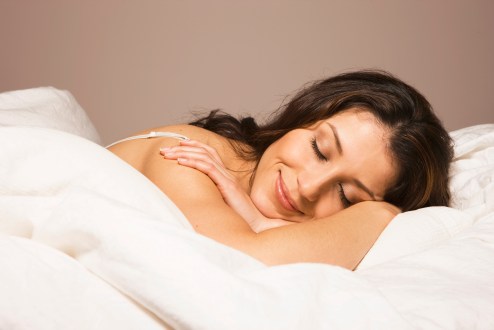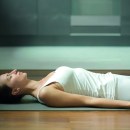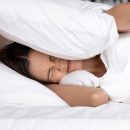Sleep myths: 12 common fallacies debunked
Are you missing out on getting the perfect night’s slumber because you believe some of these common myths surrounding sleep?
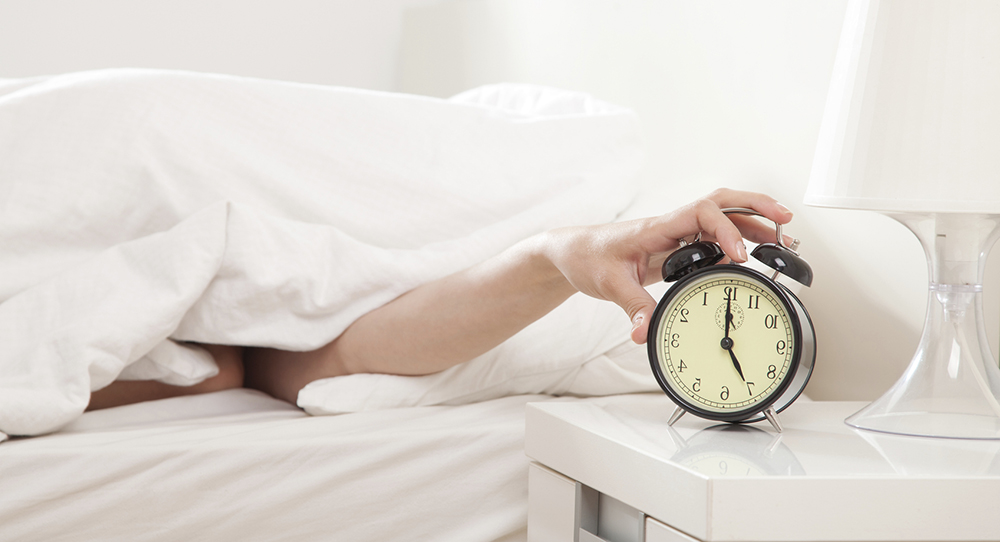
Sleep problems are a worldwide phenomenon and the bane of many people’s existence. The first step in tackling our sleep problems and getting the rest we need is to become better educated and dispel the sleep myths that may be hindering us from getting the rest we deserve. Below we’ve rounded up the most common myths about sleep and debunked the bad science that may be putting you on the wrong path to a restful night.
Common myths about sleep
From power naps to powering through, these are the myths about sleep you need to be aware of.
Sleep Myth 1 – Napping during the day is the best remedy for a sleepless night
If you’ve had a bad night’s sleep, it can be inviting to have a cheeky forty winks, particularly on a Sunday afternoon after a glass of wine and a satisfying lunch. Surely this is a blissful way to catch up on lost sleep?
‘The thing to remember is that human beings are routine-based – we are basically a bunch of walking clocks!’ says Heather Darwall-Smith, the author of The Science Of Sleep. ‘One big issue during lockdown was that our rhythms got out of whack. There was no boundary between work and home – everything merged.’ In other words, napping adds further confusion. ‘If you are waking up several times a night, your sleep is fragmented and its quality is poor. Napping only exacerbates the fragmentary cycle. The goal should be having all our sleep at once at a consistent time,’ says Darwall-Smith.
Naps can help some people, however, as long as they are not having chronic sleep problems. ‘If you are an older person or someone suffering from chronic pain and you’ve slept poorly one night, a nap can be a useful top-up. But nothing more than 30 minutes – if you go into a deep sleep state, you will feel groggy when you come out of it, rather than refreshed and well-rested,’ explains Darwall-Smith.
Another exception to the no-nap rule is if you have a baby or small children keeping you up at night. ‘This is different because your lack of sleep is down to something actively getting in the way. That’s actually the best sleep problem to have,’ says sleep physiologist Stephanie Romiszewski. ‘Napping during the day can help, even though it’s not ideal. Having young kids can be hard, but remind yourself that they aren’t going to be keeping you up forever.’
Sleep Myth 2 – Going to bed early is the answer
It might sound counterintuitive but, if you’re sleeping poorly, then hitting the pillow an hour earlier is rarely the solution. ‘Whatever the trigger, once poor sleep has happened, your body clock is out of sync,’ says Kathryn Pinkham, a psychologist who runs a Cognitive Behavioural Therapy for insomnia (CBT-i) clinic. ‘We need to wipe the slate clean and educate the body again. The first step is to create a stronger appetite for sleep and programme your body to understand that you want to sleep for seven or eight hours straight.’
For most of us, we can quickly become neurotic about not getting enough sleep. It only needs to happen for a night or two and The Fear descends. ‘Anxiety kickstarts the fight or flight response and, before you know it, your bed has become the cue for that. What you need to do is spend less time in bed ,’ says Pinkham. She explains that the difference between regular CBT and CBT-i is that the former will treat the anxiety arising from insomnia but it might not address the problems with sleep specifically.
“People go to their room at 9pm – but 10 hours in bed is too much. The more vigilant we are about what time it is, the less likely we are to sleep”
The remedy is only to go to bed when you feel tired enough to sleep. ‘People tell me they do yoga before bed, have a bath or light a candle and go up to their room at 9pm… But 10 hours in bed is probably way too much. The body knows it doesn’t need that much sleep but it has to do something with the time, so it takes ages to get to sleep. The more vigilant we become about what time it is, the less likely we are to get to sleep,’ she says.
Sleep Myth 3 – When you wake up in the middle of the night, stay in bed and sleep will come
A frequent issue once your sleep pattern is disrupted is waking with a jolt at exactly the same time in the depths of the night. Anxiety kicks in, compounded by the inability to get back to sleep. It is tempting to stay in bed in the hope that you will fall sleep again, but that’s not the answer.
‘Waking up at the same time every night is a sign that you have trained your internal clock to wake up. When you look at the actual clock, you are confirming that, yes, your body has done the right thing by waking you at 3.13am,’ says Pinkham. ‘Not only does it create a pattern of waking to check the time, it also triggers a fight or flight response.’
When you wake up, don’t look at the clock. Instead, get out of bed and go into another room and read or listen to an audiobook. ‘Change the emotional state you’re in,’ advises Pinkham. ‘As soon as you feel sleepy again, go back to bed. And, above all, do not be tempted to set your alarm for a later wake-up to recover your sleep debt!’
She also suggests that you schedule time on a daily basis to put down your anxieties on paper. ‘Spend 20 minutes writing about all the stuff on your mind. Identify which of the issues you can deal with and make a plan for each one. Also consider the items that are hypothetical worries. Acknowledge that it’s OK to think about these, but realise that it’s not possible to control tomorrow. Let them go. The aim is to ensure that bed is no longer the place for worry because you are addressing these issues during the day.’
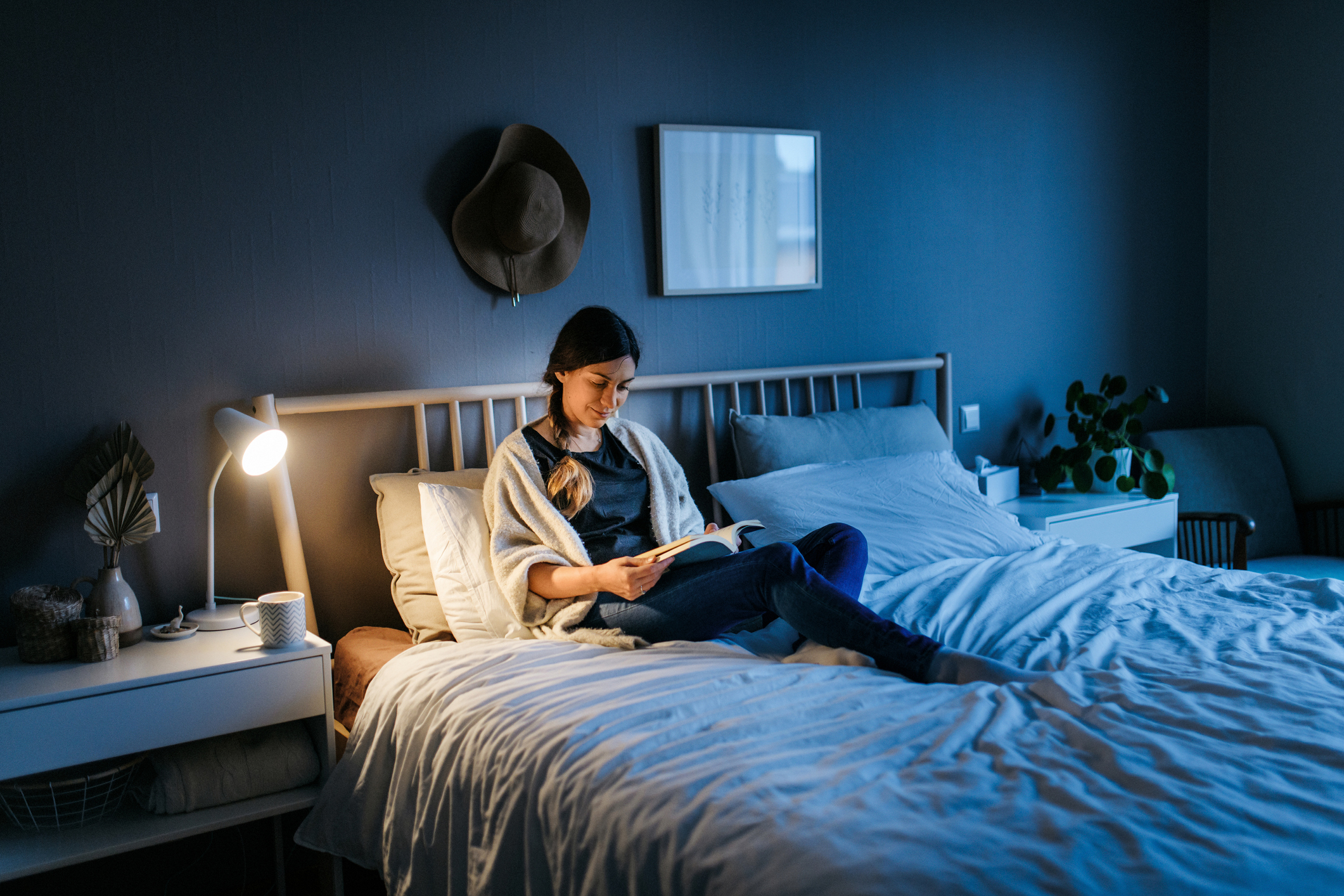
Sleep Myth 4 – Your evening routine is the most important factor
We’ve been taught from childhood about the importance of getting ready for bed in the right way, whether with a warm bath, reading a book or having a cup of cocoa or camomile tea. It’s therefore a surprise to learn that the most impactful time for setting a new sleep routine is the first hour of the day, and not the last.
‘We’re all obsessing over anxiety reduction and relaxation but, while those things are great for general wellbeing, they won’t fix sleep problems,’ says Romiszewski, who believes a strong morning regime is key.
‘Wake up at the same time every morning, even on weekends. Every day for the next three weeks, set your alarm for 6am. If you can expose yourself to bright light – either outside or with a full-spectrum lamp – you will notice that you feel wide awake more quickly. Get some form of gentle exercise and then eat.
Do something you love, such as dancing or listening to your favourite podcast. You will not only feel so much better, you’ll be amazed what a difference it makes to your sleep cycle – far better than any complicated evening regime.’
Sleep Myth 5 – Your partner is the cause of your wakefulness
If you have a bedmate who snores, talks in their sleep or has sleep apnoea, a more serious condition that causes them to gasp for breath while sleeping, you might seethe with resentment and view them as the source of your sleeplessness. ‘If only you would get your problem sorted out, I would sleep well,’ you may grumble.
But experts don’t encourage blaming another person or dragging an unwilling partner to the doctor (although sleep apnoea needs medical attention). ‘If you were a good sleeper, it’s unlikely your sleep would be so disrupted by external sounds,’ says Romiszewski. ‘When a person is suffering from insomnia, they become more sensitive to being woken by environmental triggers – and that’s probably what is happening to you.’
“Humans are not designed to sleep together… Research points to the fact that couples who sleep apart have more sex and better marriages”
Her approach would be to treat the sleep-deprived person, not the snorer. ‘I would start by boosting the quality of your sleep. Obviously, if the snorer recognises that they have a problem and will seek help, that is great – but it can be hard to change another person.’ The other potential remedy she suggests, which sounds obvious but comes with a good deal of stigma, is to try separate bedrooms if possible.
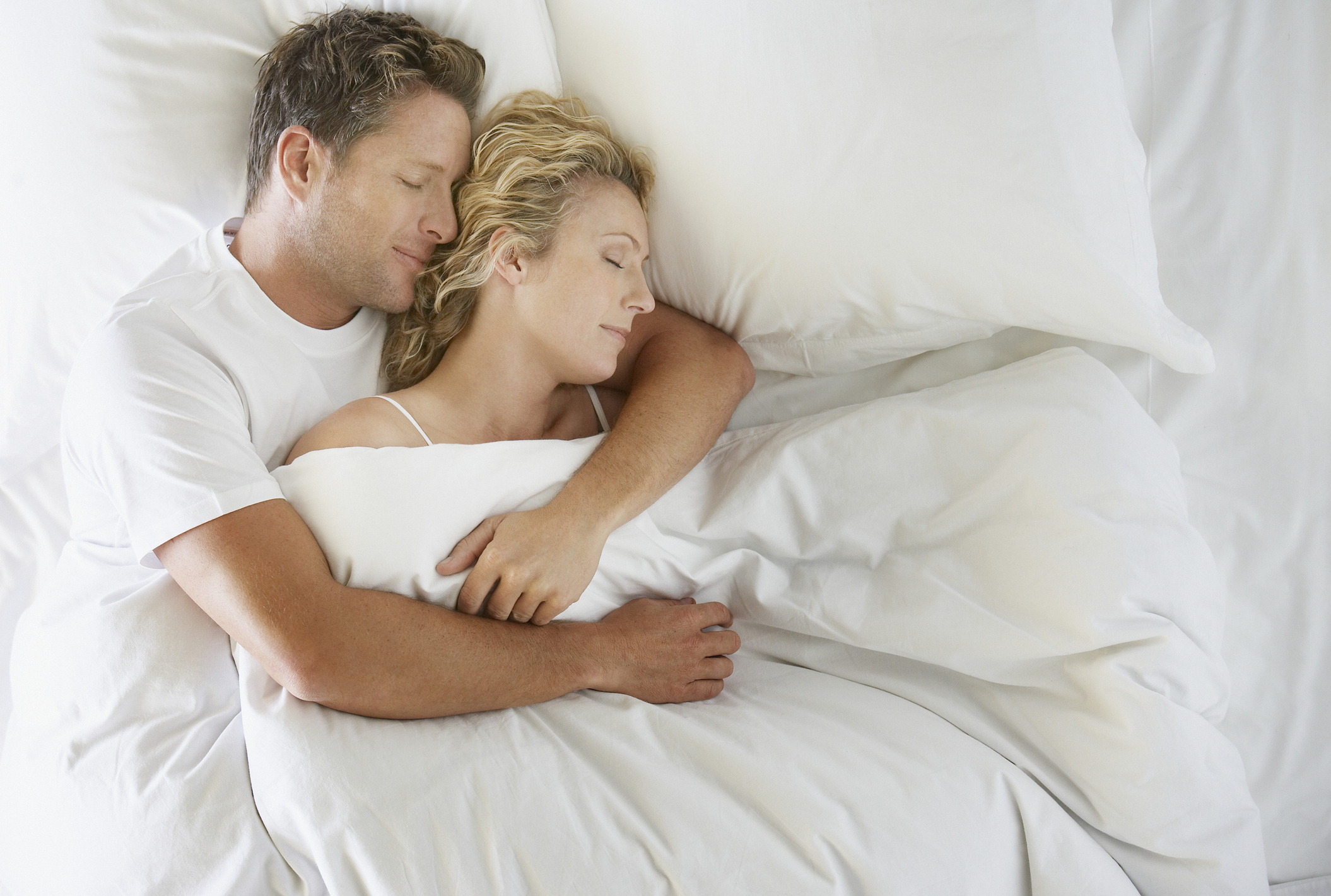 ‘Humans are not designed to sleep together. People tend to feel bad about not sleeping in the same bed but research points to the fact that couples who sleep apart have more sex and better marriages. Why are we forcing everyone to do the same thing?’ Rimoszewski explains that everyone has a different circadian rhythm – in fact, couples consult her to have their out-of-sync sleep patterns aligned. This involves one person changing their exposure to light and other behaviour, making separate beds sound like a far easier option!
‘Humans are not designed to sleep together. People tend to feel bad about not sleeping in the same bed but research points to the fact that couples who sleep apart have more sex and better marriages. Why are we forcing everyone to do the same thing?’ Rimoszewski explains that everyone has a different circadian rhythm – in fact, couples consult her to have their out-of-sync sleep patterns aligned. This involves one person changing their exposure to light and other behaviour, making separate beds sound like a far easier option!
Sleep Myth 6 – Eight hours a night is the perfect amount
A major stumbling block to getting enough sleep is the oft-quoted magic number of eight hours – so it’s reassuring to hear that many people don’t need that much at all.
Probably the most famous example of this was Margaret Thatcher, who claimed to thrive on four hours a night. ‘People’s sleep needs are different,’ says Darwall-Smith. ‘You may need seven, I may need nine… Different life stages are a factor too,’ she says. Older people tend to have lighter sleep, while teenagers need more than most. Our sleep requirements change throughout life. ‘This idea of eight hours causes anxiety for people. They come into my clinic and say: “I’ve got insomnia – I’m not getting eight hours a night.” The truth is that they may not need it,’ says Darwall-Smith.
Sleep Myth 7 – Sleep trackers are the best way to ensure a good night’s sleep
In our digital world, we can be duped into thinking that the solution to poor sleep can be ‘hacked’ by technology. Devices claim to offer a sophisticated analysis of time spent in various sleep phases but, if you struggle to sleep, they may do more harm than good.
‘I don’t see the point of sleep-tracking devices,’ says Pinkham. ‘If you already know you don’t sleep well, all a tracker is going to do is prove how bad things are. There is even a condition known as orthosomnia in which sufferers become obsessed with getting the perfect night’s sleep.’
The danger with sleep tracking is that it might cause you to alter your behaviour to compensate for perceived poor sleep. ‘Someone might say “my device shows I had fragmented sleep last night, so I won’t go to the gym later in case I feel exhausted”. Had you not been given that sleep data, you’d have listened to your body,’ says Pinkham. ‘You can’t micromanage sleep stages either. People come to see me saying, “Look! I’m not getting enough REM (dreaming) sleep.” So what? And is the device accurate?’
![]() A better form of self-monitoring might be to keep a sleep diary, suggests Darwall-Smith. ‘For two weeks, note down not just what time you go to bed and get up, but also how much caffeine or alcohol you had and at what time, what you ate and how much exercise you took. You might notice that something specific triggered poor sleep, such as doing a high-intensity workout at 7pm, which meant you went to bed with an elevated heart rate.
A better form of self-monitoring might be to keep a sleep diary, suggests Darwall-Smith. ‘For two weeks, note down not just what time you go to bed and get up, but also how much caffeine or alcohol you had and at what time, what you ate and how much exercise you took. You might notice that something specific triggered poor sleep, such as doing a high-intensity workout at 7pm, which meant you went to bed with an elevated heart rate.
Also do a bit of life tracking. What’s on your mind – are you worrying about discussing a matter with a colleague? Did something specific come up during the day? This will provide evidence for what’s affecting your sleep.’
Sleep Myth 8 – You can sleep when you’re dead
Less sleep might help us find more hours in the day to work – or party – but it will take its toll on our health.
Research* has found that sleeping for only four hours for six nights in a row can increase stress, blood pressure and insulin resistance, which can lead to Type 2 diabetes. Less sleep also impairs our immune system, making us vulnerable to infection and illness.
Pulled an all-nighter? You’ll be experiencing the same level of cognitive impairment created by being over the drink-drive limit. In Britain, we sleep for an average of 6.8 hours, with 35% of us getting less than the recommended seven hours per night.*
Sleep Myth 9 – The snooze button helps you wake up
Serial snoozer? Here’s a reason to jump out of bed on the first alarm. Not only can hitting snooze make it more difficult to wake up because you begin to enter a new sleep cycle,** this fragmented sleep also makes you feel sleepier during the day as it is less restorative than uninterrupted sleep.
Entering a new sleep cycle and then waking again as your snooze goes off can cause sleep inertia – that feeling of sluggishness when we are still half asleep, making it more difficult to wake up than if you had risen with your first alarm.†
Sleep Myth 10 – Drinking alcohol relaxes you and helps you sleep
Using alcohol to promote sleep is a false economy. For many, alcohol may seem essential for ‘switching off’. This is because its first response is to relax us by heightening the relaxing brain chemical, gamma-aminobutyric acid (GABA), which soothes the brain and nervous system and tends to be low in those with insomnia and anxiety.
A cycle of having alcohol before bed can affect sleep quality later, even if it does help some people fall asleep. ‘The practice sets up a pattern in which the brain starts to need alcohol to create GABA, rather than utilising our own,’ says nutritional therapist and yoga teacher, Charlotte Watts, in her book The De-Stress Effect (Hay House, £12.99).
‘Ensuring good magnesium levels (green, leafy vegetables are rich in magnesium) is effective. For inducing sleep hormones, teas work for me. I turn to camomile and get digestive help from fennel and peppermint, as stress held in the gut can relate to sleep issues. Pukka’s cleanse tea is great.’
Sleep Myth 11 – Sleep is gender equal
Do you ever find that you drag yourself out of bed in the morning, while your partner/brother/male housemate springs up like a jack-inthe- box? Research has found that women are more prone to sleep problems than men – mainly due to the hormones oestrogen, progesterone and testosterone, which fluctuate with menstrual cycles, and have an effect on the regulation of sleep in the brain.
This is a new discovery as, until recently, the majority of sleep studies were conducted on men.††
Sleep Myth 12 – More sleep is always better
Just as too little sleep can be harmful to health, so can too much. Shawn Youngstedt of Arizona State University* says that habitually sleeping for eight hours or longer can be just as detrimental to our lifespan, if not more so, than sleeping too little.
Experts theorise that this could be because spending longer in bed can eat into our day, and take up time we might otherwise have spent being active.**
Sleep Myth 13 – Teenagers are lazy
The tendency that young people have to sleep late and then reluctantly get up for school isn’t laziness, but a phenomenon found in all mammals, wherein adolescents’ circadian rhythms (body clock) and sleep pressure ‘build up’, creating a delayed sleep phase.†††
Campaigners have been pushing for later school starts to give teenagers the best chance of success. According to a study, a 7am alarm for a teenager is the equivalent of a 4.30am start for a 50-year-old. ††††
*‘The New Scientist’ issue 3075; **EJ Stepanski et al, The effect of sleep fragmentation on daytime function, ‘Sleep’, 2002; †T Akerstedt et al, Awakening from sleep, ‘Sleep Medicine Reviews’, 2002; ††’Scientific American Mind’ issue 15; †††M Hagenauer et al, Adolescent Changes in the Homeostatic and Circadian Regulation of Sleep, ‘Developmental Neuroscience’, 2009; ††††Paul Kelley et al, Synchronizing education to adolescent biology, ‘Learning, Media and Technology’, 2015.
Photograph: iStock


